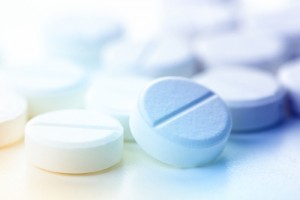 Over the last few years, evidence has been accumulating in the research community suggesting that obese or overweight women have a higher risk to develop breast cancer alongside decreased susceptibility to anti-cancer treatments.
Over the last few years, evidence has been accumulating in the research community suggesting that obese or overweight women have a higher risk to develop breast cancer alongside decreased susceptibility to anti-cancer treatments.
A team of researchers from the University of Texas at Austin has found that non steroidal anti-inflammatory drugs (NSAIDs) such as aspirin, can lower the risk of breast cancer in women with a higher body mass index (BMI).
“Obesity by itself is the worst prognostic factor. Obese women do worse on hormone therapy, chemotherapy and radiation therapy. We used to think that the mechanism involved the fact that they had other conditions such as diabetes or heart disease, but now we are starting to appreciate that the obese patient has a different biological disease,” Linda deGraffenried, an associate professor of nutritional sciences at the University of Texas at Austin, said in a Time Magazine interview to writer Alice Park.
The study, entitled “NSAID Use Reduces Breast Cancer Recurrence in Overweight and Obese Women: Role of Prostaglandin–Aromatase Interactions” and published in this month’s edition of Cancer Research journal, reviewed data from estrogen receptor-positive (ERa) breast cancer patients with an average body mass index (BMI) bigger than 30 (a normal BMI stands between 18.5 and 24.9).
The results indicated that women who took NSAID had a 52% lower recurrence rate of breast cancer and a 28-month delay in time to recurrence when compared to controls not using the drugs.
“I’ve been doing cancer research for 20 years, and there has been nothing that was able to give that kind of benefit. So yes, I was extremely surprised that by just reducing inflammation you could get that significant a benefit,” Dr. deGraffenried also added in the interview.
To understand the underlying mechanisms behind the observed effect, the researchers analyzed in vitro sera from obese and normal-weight patients with breast cancer, and discovered that upon exposure to sera from obese patients, macrophages expressed higher amounts of COX-2 and produced more PGE2, two highly inflammatory molecules.
Furthermore, this correlated with enhanced preadipocyte aromatase expression, an enzyme involved in the production of a form of estrogen, estradiol, which is directly involved in breast cancer growth, partly explaining why obese women show higher rates of breast cancer.
Upon the addition of NSAIDs that could inhibit aromatase production, the team observed that the differences in breast cancer cell ERα activity, proliferation, and migration between sera from obese and normal-weight patients were effectively eliminated or reduced.
The question is still open as to whether patients with other types of breast cancer can also benefit from NSAIDs, however research efforts are being made in that direction.
Many women are already taking low-dose aspirin to prevent heart disease and colon cancer, and as to breast cancer prevention Dr. deGraffenried concludes “If you are not already on an NSAID or if there is no contraindication for an NSAID, there is reason to consider asking your doctor about it”.

